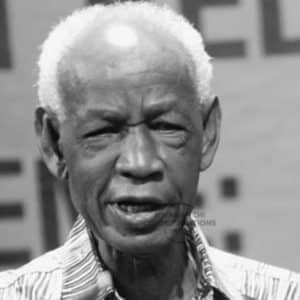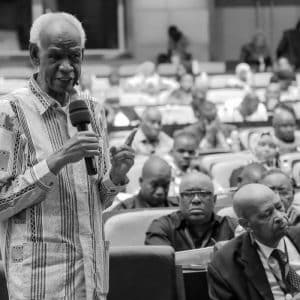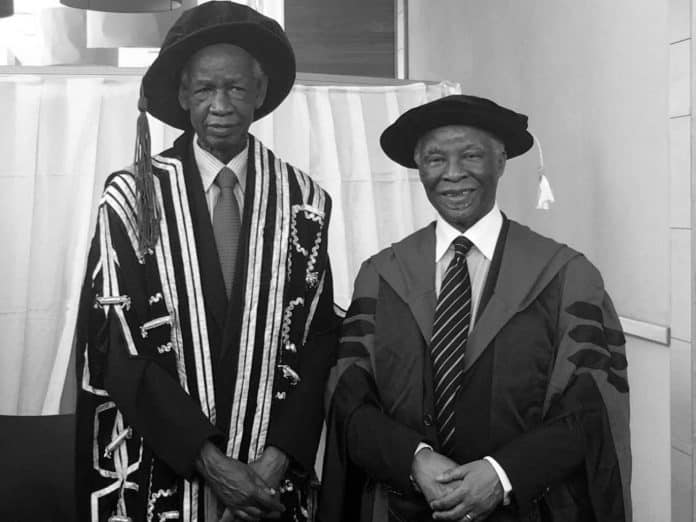Introduction to Sokoine University of Agriculture (SUA)
Sokoine University of Agriculture (SUA) is a premier institution of higher learning in Tanzania, renowned for its excellence in agricultural education, research, and extension services. Established in 1984, SUA has been at the forefront of driving the country’s agricultural development, playing a pivotal role in addressing the challenges faced by the sector and fostering sustainable solutions.
The university’s commitment to agricultural research is evident in its state-of-the-art facilities, diverse research programs, and a talented pool of faculty and researchers. SUA’s research agenda spans a wide range of areas, including crop production, livestock management, natural resource management, and agribusiness, among others.
The importance of agricultural research at SUA
Agricultural research at SUA is of paramount importance, as it directly contributes to enhancing food security, improving rural livelihoods, and promoting sustainable agricultural practices in Tanzania. The research conducted at the university has the potential to unlock new frontiers in agricultural productivity, develop innovative technologies, and inform evidence-based policymaking.
By bridging the gap between academic knowledge and practical application, SUA’s research efforts have a far-reaching impact on the agricultural sector, benefiting smallholder farmers, agribusinesses, and policymakers alike. The university’s research outputs have been instrumental in addressing pressing challenges such as climate change, pest and disease management, and post-harvest losses, ultimately contributing to the country’s overall agricultural development.
Joseph Warioba’s background and role at SUA

Joseph Warioba, a distinguished scholar and visionary leader, has played a pivotal role in advancing agricultural research at Sokoine University of Agriculture. With a strong academic background and a deep understanding of the agricultural sector, Warioba has dedicated his career to driving transformative change within the university.
Warioba’s journey at SUA began in the early 1990s, when he joined the university as a lecturer and researcher. His exceptional academic credentials, coupled with his unwavering commitment to agricultural development, quickly propelled him to positions of leadership within the institution. Over the years, Warioba has held several key roles, including serving as the Vice-Chancellor of SUA, a position he held with distinction from 2002 to 2012.
Joseph Warioba’s contributions to advancing agricultural research at SUA
During his tenure as Vice-Chancellor, Warioba’s leadership was instrumental in shaping the university’s research agenda and elevating its reputation as a center of excellence in agricultural research. He implemented a strategic vision that prioritized cutting-edge research, fostered collaborative partnerships, and ensured the efficient allocation of resources to support innovative projects.
One of Warioba’s key achievements was the establishment of the Agricultural Research Institute (ARI) at SUA, a dedicated research hub that has become a hub of cutting-edge research and technology development. Under his guidance, the ARI has attracted renowned researchers, secured significant funding, and facilitated the transfer of knowledge and best practices to the agricultural community.
Warioba’s unwavering commitment to capacity building has also been a hallmark of his leadership. He has championed the development of specialized research programs, fostered the growth of postgraduate studies, and ensured that the university’s research outputs are disseminated effectively to stakeholders.
Success stories and achievements under Joseph Warioba’s leadership
During Warioba’s tenure, SUA has witnessed a remarkable surge in its research output and impact. The university has been recognized for its groundbreaking research in areas such as climate-smart agriculture, precision farming, and postharvest management, among others.
One notable success story is the development of drought-resistant crop varieties, which have been instrumental in helping smallholder farmers adapt to the challenges posed by climate change. Warioba’s leadership has been crucial in securing funding, forging partnerships, and ensuring the seamless integration of these innovative solutions into the agricultural ecosystem.
Furthermore, SUA’s research has contributed to the improvement of livestock production, with Warioba’s guidance leading to the development of novel feeding strategies, disease management protocols, and genetic enhancement programs. These advancements have had a tangible impact on the livelihoods of livestock farmers across the country.
Collaborations and partnerships fostered by Joseph Warioba
Recognizing the importance of collaboration and knowledge-sharing, Warioba has been instrumental in establishing and strengthening partnerships between SUA and various stakeholders, both within Tanzania and internationally. Under his leadership, the university has forged strategic alliances with government agencies, private sector entities, and international research organizations.
These partnerships have facilitated the exchange of expertise, the mobilization of resources, and the implementation of joint research projects. Warioba’s ability to navigate complex networks and build trust-based relationships has been crucial in securing funding, accessing cutting-edge technologies, and ensuring the widespread dissemination of SUA’s research outputs.
Through these collaborative efforts, SUA has become a hub for agricultural innovation, attracting researchers, policymakers, and industry leaders from around the world. Warioba’s vision and leadership have been instrumental in positioning the university as a global player in the field of agricultural research and development.
Impact of Joseph Warioba’s leadership on the agricultural community

Joseph Warioba’s transformative leadership at Sokoine University of Agriculture has had a profound impact on the agricultural community in Tanzania and beyond. His unwavering commitment to advancing agricultural research has resulted in tangible benefits for farmers, policymakers, and the broader agricultural ecosystem.
One of the most significant impacts of Warioba’s leadership has been the improved livelihoods of smallholder farmers. The research outputs from SUA, facilitated by Warioba’s guidance, have been instrumental in enhancing agricultural productivity, reducing post-harvest losses, and improving access to innovative technologies and practices. Farmers have witnessed increased crop yields, more efficient livestock management, and better adaptation to climate change, all of which have contributed to their economic well-being and food security.
Moreover, Warioba’s emphasis on the dissemination of research findings has ensured that the knowledge generated at SUA reaches policymakers, extension workers, and other stakeholders. This has led to the formulation of evidence-based policies, the development of targeted support programs, and the implementation of sustainable agricultural practices at the national and regional levels.
Future prospects and goals for agricultural research at SUA
Under Joseph Warioba’s visionary leadership, Sokoine University of Agriculture has set ambitious goals for the future of agricultural research. The university is committed to building on its past successes and further strengthening its position as a leading center of excellence in the field.
One of the key priorities for SUA is to continue expanding its research capabilities and diversifying its research portfolio. This includes investing in cutting-edge technologies, such as precision farming, biotechnology, and digital agriculture, to address emerging challenges and unlock new opportunities for the agricultural sector.
Additionally, the university aims to enhance its collaborative efforts, both nationally and internationally, to foster cross-pollination of ideas, access global expertise, and secure funding for transformative research projects. Warioba’s ability to navigate complex networks and forge strategic partnerships will be crucial in realizing these ambitious goals.
Furthermore, SUA is committed to strengthening its capacity-building initiatives, with a focus on developing the next generation of agricultural researchers, policymakers, and practitioners. This includes enhancing postgraduate programs, providing targeted training and mentorship, and creating pathways for the seamless integration of research outputs into the agricultural value chain.
Recognition and awards received by Joseph Warioba for his leadership
Joseph Warioba’s exceptional leadership and contributions to agricultural research at Sokoine University of Agriculture have been widely recognized both nationally and internationally. He has received numerous accolades and awards in acknowledgment of his transformative impact on the university and the agricultural sector.
Some of the notable awards and recognition received by Warioba include:
- The Presidential Order of the United Republic of Tanzania, for his outstanding service and contribution to the development of the agricultural sector in Tanzania.
- The African Agricultural Technology Foundation (AATF) Award for Excellence in Agricultural Research and Development, recognizing his pioneering work in advancing innovative agricultural technologies.
- The World Bank’s Global Development Award for his leadership in fostering collaborative partnerships and driving the integration of research findings into policy and practice.
- The prestigious African Union Kwame Nkrumah Scientific Award, which honors distinguished African scholars and scientists who have made significant contributions to the advancement of science and technology on the continent.
These awards and recognitions are a testament to Warioba’s unwavering commitment, visionary leadership, and the tangible impact of his work at Sokoine University of Agriculture.
Conclusion: Joseph Warioba’s legacy at SUA and the future of agricultural research
Joseph Warioba’s tenure as Vice-Chancellor of Sokoine University of Agriculture has left an indelible mark on the institution and the broader agricultural landscape in Tanzania. His visionary leadership, strategic vision, and unwavering dedication to advancing agricultural research have transformed SUA into a hub of innovation and excellence.
Through his tireless efforts, Warioba has not only elevated the university’s research capabilities but also fostered a culture of collaboration, knowledge-sharing, and practical application. The success stories and achievements that have unfolded under his guidance serve as a testament to his transformative impact on the agricultural community.
As Sokoine University of Agriculture looks towards the future, the legacy of Joseph Warioba will continue to inspire and guide the institution’s ongoing pursuit of agricultural excellence. With a strong foundation laid by Warioba’s leadership, SUA is poised to further solidify its position as a global leader in agricultural research and development, contributing to the sustainable growth and prosperity of the agricultural sector in Tanzania and beyond.
For more articles related to Education in Tanzania, click here!

































